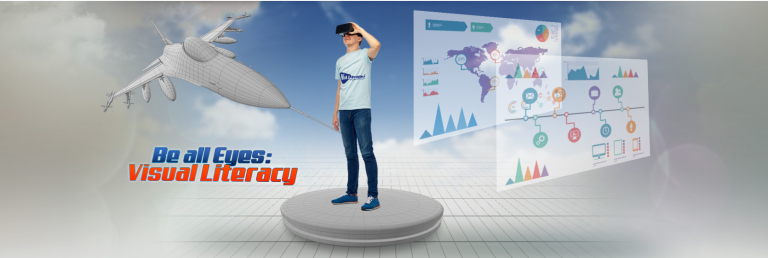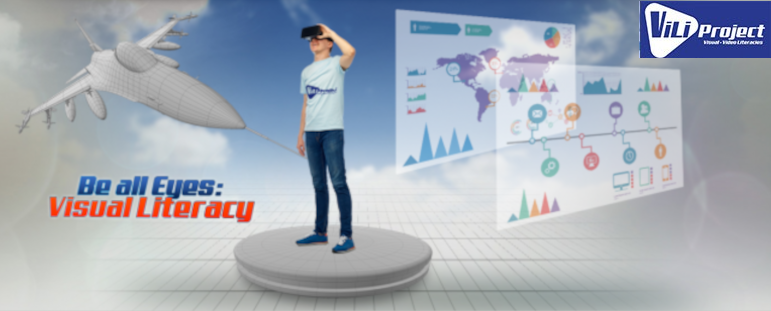 Dear colleague,
Dear colleague,
We are writing to invite you to participate in a free online course for educators, starting 8th October
“Visual Literacies: Exploring educational practices and technologies” (https://mooc.viliproject.eu/).
The course, designed by Dr. Julie-Ann Sime and Dr. Chryssa Themelis, offers open access content and tutor facilitated discussions (in Moodle). We will explore how visual communication strategies, visual thinking techniques, and visual technologies can be used to make teaching more visual (e.g. through the use of comics, infographics, video, virtual reality, augmented reality). Examples come from a range of curricular subjects, e.g. medicine, language teaching, maths.
We are also offering 5 live webinars with leading academics on a range of related topics (https://mooc.viliproject.eu/#presenters):
- Kirk St. Amant, Louisiana Tech University, USA & University of Limerick, Ireland.
Cognition, Recognition, and Visual Design.
The webinar examines how the cognitive concepts of schemas, prototypes, and scripts and our perceptions of designs influence how individuals perceive, understand, and respond to different designs.
- Lesley Farmer, California State University, USA.
Comics Art & Information Architecture
This session explains information architecture, focusing on comic arts’ features for representing and structuring knowledge, noting visual literacy.
- Avgoustos Tsinakos, Technological Educational Institute of Kavala, Greece.
ARTutor
ARTutor is an Augmented Reality educational platform which consists of a web-based authoring tool and a mobile application.
- Vanessa Dennen, Florida State University, USA.
Who is my teacher? The visual development of online instructor identity and presence
The webinar explains how various instructor identity is communicated (or not) via their social presence in a course as well as online more generally, and the role that a wide variety of visual elements play in communicating identity.
- Matthew Morena, Christopher Newport University, USA.
Video for Calculus

This session explains how these video assignments align well with what recent studies have identified as effective homework practices.
We hope that you will join us for discussions online and/or for the Webinars.
Best wishes,
Julie-Ann Sime and Chryssa Themelis
Centre for Technology-Enhanced Learning, Educational Research Department.

The massive open online course (MOOC) has been produced as part of the Visual/Video Literacies project (www.viliproject.eu) which is co-funded by the ERASMUS+ Programme of the European Union and Lancaster University (UK), Danube University Krems (Austria), CARDET (Cyprus) and WIDE Services (Greece). As an associate member, the Louisiana Tech University (Department of Visual Arts, VISTA program) worked with us to provide infographics and visuals.


